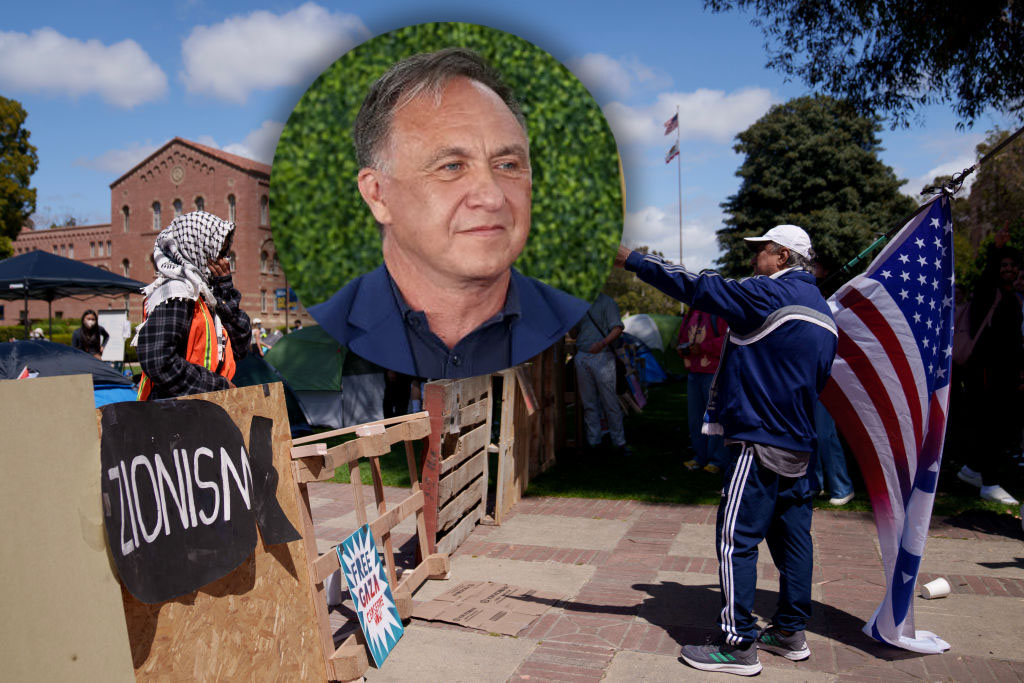“Fill the Void,” which won Israel’s equivalent of the Academy Award last year, is a love story unlike any Hollywood fare and it is set in a Jewish community unfamiliar to most Jews.
The movie is by and about a Charedi, or ultra-Orthodox, enclave in the center of Tel Aviv, centuries removed in time and place from the swinging citizenry a few blocks away.
The film’s central character is Shira, at 18 the youngest daughter of the family, about to be married to a promising young man of the same age and background.
Then tragedy strikes. Shira’s 28-year-old sister, Esther, dies while giving birth to her first child, and amid the mourning, Shira’s match is put on hold.
Esther’s husband, Yochai, now a widower responsible for the newborn baby, realizes that he will have to remarry eventually and a matchmaker comes up with a prospect, a devout widow in Belgium.
When Shira’s mother learns that Yochai, and, worse, her only grandchild, may leave the country, she seeks to forestall this calamity by having Shira marry her dead sister’s husband.
While hoping that Shira will marry Yochai, her parents leave the decision up to her, and the conflicted girl must finally make her own choice.
“Fill the Void” is the first feature film for both director-writer-producer Rama Burshtein, and for Hadas Yaron, who portrays the young Shira. During a recent visit to Los Angeles, Yaron and Burshtein sat down for separate interviews with the Journal.
Yaron is 23 and had no problem playing an 18-year-old girl, but she faced another difficulty. Coming from a secular family — no actual Charedi girl would act in the movie — Yaron had to get the feel of living in a closed Chasidic environment.
But once she put on the modest clothing demanded for the role, she said, “I felt very holy and harmonious.”
With only one previous role in a minor film on her resume, Yaron got into her part so convincingly that she won Israel’s best actress award last year and did likewise at the prestigious Venice Film Festival in 2012.
Asked how the role affected her, Yaron responded, “I learned that you can’t judge people by how they look or how they are dressed.”
Director Burshtein had the advantage of having lived in both the secular and ultra-Orthodox worlds. Born to an Israeli father and an American mother, she moved from New York to Kfar Saba, near Tel Aviv, shortly after her birth.
She returned to New York at 17 and remembered, “I was totally secular and pretty wild … but at the same time, I was always a seeker.”
Once she was introduced to the Charedi community through a friend, “It was an instant conversion … it was like coming home,” she said.
As Burshtein believes, and illustrates in “Fill the Void,” it is a common misconception that in the Chasidic community parents pick husbands for their daughters, regardless of the girl’s wishes. Actually, she argues, while parents may arrange the options for marriage partners, the final decision is up to the daughter.
In any case, she maintains that whatever the differences in outlook among denominations, “being Jewish is all about feelings.”
Given that love and passion are common to all humans, what may be more pronounced among the Charedim is “the power of commitment.” By that, she means the determination to “do the work” needed to make the marriage successful and permanent.
The best time for a girl to embark on such a commitment is when she is around 17, Burshtein counseled.
In her own life, Burshtein, 46, practices what she preaches. She and her husband, a psychotherapist, have three sons and one daughter between the ages of 16 and 11, having had the four kids in the span of five years.
While planning the outline of “Fill the Void,” Burshtein was determined not to get into the religious-secular conflict in Israel, and she cited her reason in a director’s statement accompanying the film.
“I set out on this journey out of a deep sense of pain,” she wrote. “I felt that the ultra-Orthodox community has no voice in the cultural dialogue. You might even say we are mute. … Our political voice is loud — even boisterous — but our artistic and cultural voice remains muffled and faint. I’m not good at agendas and politics … I am good at telling about those things I’m passionate about [and] they are all tied to the ultra-Orthodox world of observance.”
Burshtein has started writing the script for her next project, which will probably be set in New York. She wouldn’t reveal more but pledged that the movie would “always be about my world.”
“Fill the Void” opens at Laemmle’s Royal Theatre in West Los Angeles on May 24, and at the Playhouse in Pasadena and the Town Center in Encino on May 31.






















 More news and opinions than at a Shabbat dinner, right in your inbox.
More news and opinions than at a Shabbat dinner, right in your inbox.